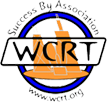
Posts Tagged ‘mortgage’
New TRID Requirements are Delaying Residential Real Estate Closings
The new TILA-RESPA Integrated Disclosure (TRID) Rule went into effect October 1, 2015 and is already delaying residential real estate closings. TRID requires loan documentation consisting of two new forms: the Loan Estimate and the Closing Disclosure to ensure compliance. These new forms consolidate the TILA-RESPA forms and are meant to give consumers more time to review the total costs of their mortgage.
The Loan Estimate is due to consumers three days after they apply for a loan, and the Closing Disclosure is due to them three days before closing. However, the three day rule is only applicable if the disclosure is delivered personally. If the disclosure is delivered any other way, the Rule “deems” the disclosure was made three business days later, making the disclosure period six or more days before the closing.
Because there are huge potential penalties to mortgage lenders if they do not make the required disclosures on a timely basis, mortgage lenders are interpreting the new rules very conservatively and are adding additional days for the disclosures as a cushion. Thus, rather than using three days before closing as a cutoff, the cutoff for a particular transaction might be 7 – 10 days or more.
Feel free to contact an Illinois attorney experienced in handling all aspects of real estate closings for both buyers and sellers at Logan Law, LLC if you have questions about sale of your Chicago area real estate or any other area of the laws governing the purchase or sale of real estate.
The Special Nature of Illinois Eviction Proceedings
Illinois evictions are governed by the Forcible Entry and Detainer Act (the “Act”). That Act is designed to deal with the termination of the relationship of landlord and tenant and must balance the rights of both landlords, who generally are relying upon the rental income of their properties to pay their mortgages, and tenants, who are using the landlord’s property for their home or business.
In balancing the interests of landlords and tenants, the Illinois legislature created an expedited proceeding, focused upon who has the right to possession of the apartment or commercial space. Because of this, the Act specifically limits issues which may be raised in defense of an eviction proceeding. Section 106 of the Act specifically provides that “no matters not germane to the distinctive purpose of the proceeding shall be introduced” in defense of the proceeding.
The bottom line of the limitation to matters “germane” to the issue of possession is that the Courts have prohibited eviction defendants from raising such issues as a claim that the landlord owes the tenant money for a contract dispute between the parties or that the landlord has violated anti-trust laws. On the other hand, the Courts have specifically permitted defenses based upon the habitable condition of residential premises, violation of Chicago’s Residential Landlord and Tenant Ordinance and racial or other discrimination having motivated initiation of the eviction proceeding.
Feel free to contact an experienced Illinois landlord eviction law attorney at Logan Law, LLC if you have questions about how to properly serve eviction notices or any other area of the laws governing landlords and tenants.
Foreclosure or Other Real Estate Law Questions? Give Us a Call
In times of financial difficulties, which can happen to anyone, one major concern is homeowners who fear they may face foreclosure. Your first instinct is to hire a lawyer; however, there are steps you can take that may save your house without the added expense of attorney fees. Here are a few options you should explore before giving us a call.
Your lender may arrange a repayment plan based on your current financial situation. There can be a reduction or even a suspension of your payments for a determined amount of time. This is called a special forbearance and it is worth looking into.
A mortgage modification allows you to refinance your debt and extend the term of your mortgage loan. This helps you as it may reduce your monthly payments. If you qualify, your lender may work with you to obtain an interest free loan from HUD that will decrease your monthly payments.
Other options available to avoid foreclosure include a pre-foreclosure sale. This allows you to sell your property, pay off your loan and avoid credit rating damage. The last line of defense is a deed-in-lieu of foreclosure. Basically, this is where you just give your house back to the lender. Again, there are qualifications that need to be met before this can happen.
If you have any questions concerning foreclosure or real estate law, schedule an appointment and we will see what we can do for you.








